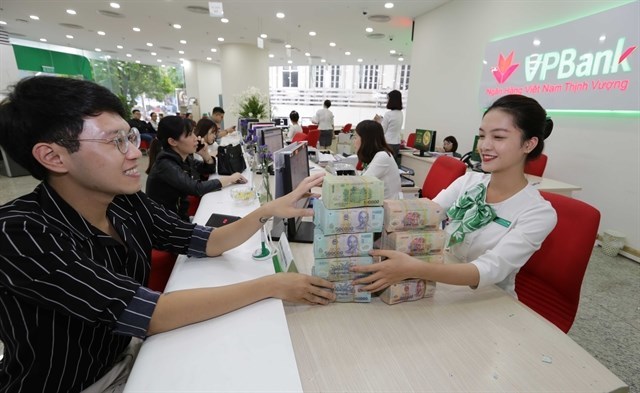
Under the EU – Vietnam Free Trade Agreement (EVFTA), Vietnam is committed to supporting European banks increase its stake-holding in two Vietnamese commercial banks to 49%.
“The commitment’s validity is within five years,” said Nguyen Thi Thu Trang, director of the WTO Center and Integration under the Vietnam Chamber of Commerce and Industry (VCCI) in a conference on October 23.
Moreover, this commitment is not applicable to four state-run banks, including Vietnam Bank for Agriculture & Rural Development (Agribank), Vietnam JSC Bank for Industry and Trade (VietinBank), Bank for Foreign Trade of Vietnam (Vietcombank), and Bank for Investment and Development of Vietnam (BIDV).
The acquisition process, however, must be in compliance with regulations related to M&A activities and competition law.
In the insurance sector, Vietnam would open markets for reinsurance, life insurance and non-life insurance. However, both EU and Vietnam have agreed upon a transition period before giving permission for EU reinsurers to establish their branches in Vietnam.
In the telecommunication sector, there would be no significant change in the first five years after the EVFTA enters into force. However, the openness level would gradually increase and higher than Vietnam’s commitment in WTO in terms of foreign ownership ratio in joint-ventures.
Trang added the EVFTA requires higher commitments from all parties concerned in fields of finance and telecommunication, however, she expected there would not be much of an impact in foreign investment activities in Vietnam.
Overall the business environment is projected to remain stable for financial services, while in the telecommunication, commitments for improvement of governance mechanism, anti-trust competition protection would lead to more transparent and predictable market environment, Trang continued.
Trang cited previous study that the EVFTA is expected to help Vietnam’s GDP increase by 2.18 – 3.25 percentage points in the 2019 – 2023 period; 4.57 – 5.3 percentage points in 2024 – 2028; and 7.07 – 7.72 percentage points in 2029 – 2033.
“For its indirect impact, the EVFTA would increase demands for services and improve Vietnam’s business environment towards stability and transparency,” Trang asserted.
“The EVFTA presents Vietnamese enterprises an opportunity to cooperate with their EU partners in improving expertise, technologies, corporate governance and competitiveness.”
However, Trang warned the presence of EU companies mean more competition in providing services, as well as other issues concerning privacy protection, safe transaction, more demanding customers among others.
VCCI’s Vice Chairman Hoang Quang Phong said Vietnam’s commitments in opening its financial and telecommunication markets not only have positive impacts on these sectors, but also for the whole economy.
However, due to its sensitive nature and close link to stability of macro-economy and information security, “a close supervision” is needed, Phong stated.
As the EU has strong expertise in fields of financial services and telecommunication, Phong said the EVFTA would have strong impact on the future landscape of Vietnam’s finance – telecommunication markets. Hanoitimes
Hai Yen

Foreign and Vietnamese banks in hot race
With great advantages being held by foreign banks, Vietnamese banks find it difficult to compete.

Foreign capital flows to Vietnamese banks
Large banks as well as smaller ones are seeking foreign investors in today's competitive market.
 As the EU has strong expertise in fields of financial services and telecommunication, the EU – Vietnam Free Trade Agreement (EVFTA) would have strong impact on the future landscape of Vietnam’s finance – telecommunication markets, said an expert.
As the EU has strong expertise in fields of financial services and telecommunication, the EU – Vietnam Free Trade Agreement (EVFTA) would have strong impact on the future landscape of Vietnam’s finance – telecommunication markets, said an expert.